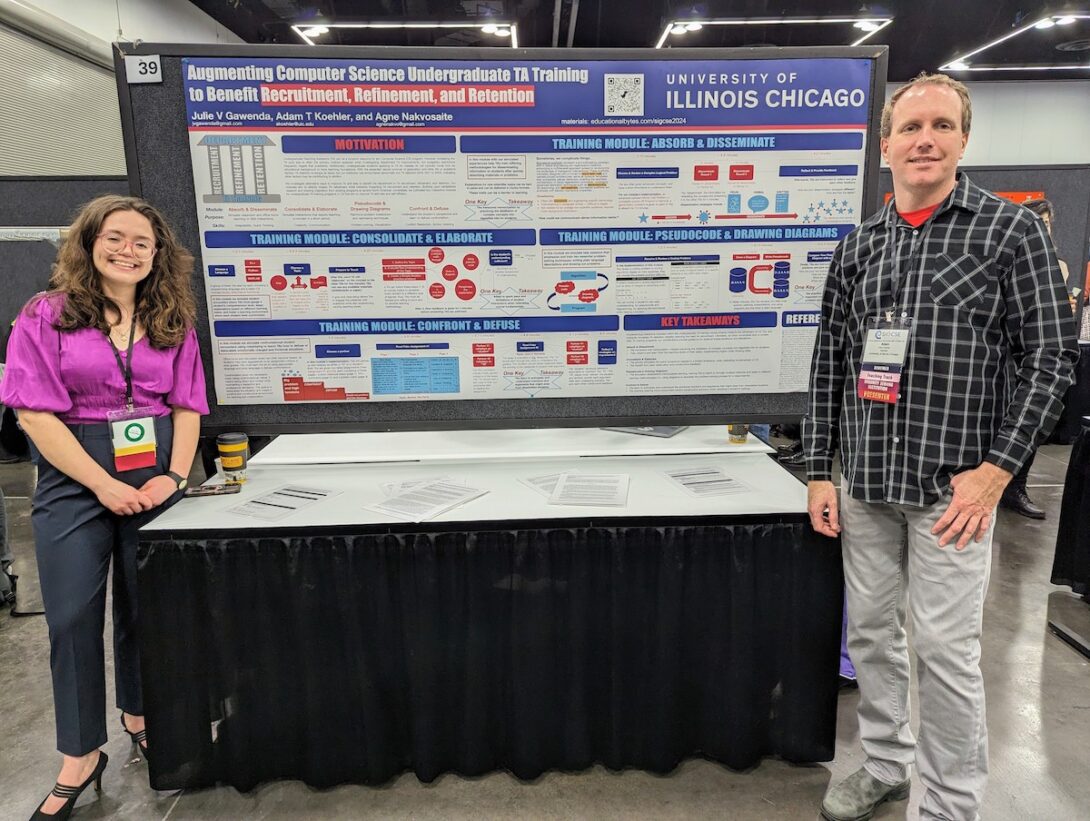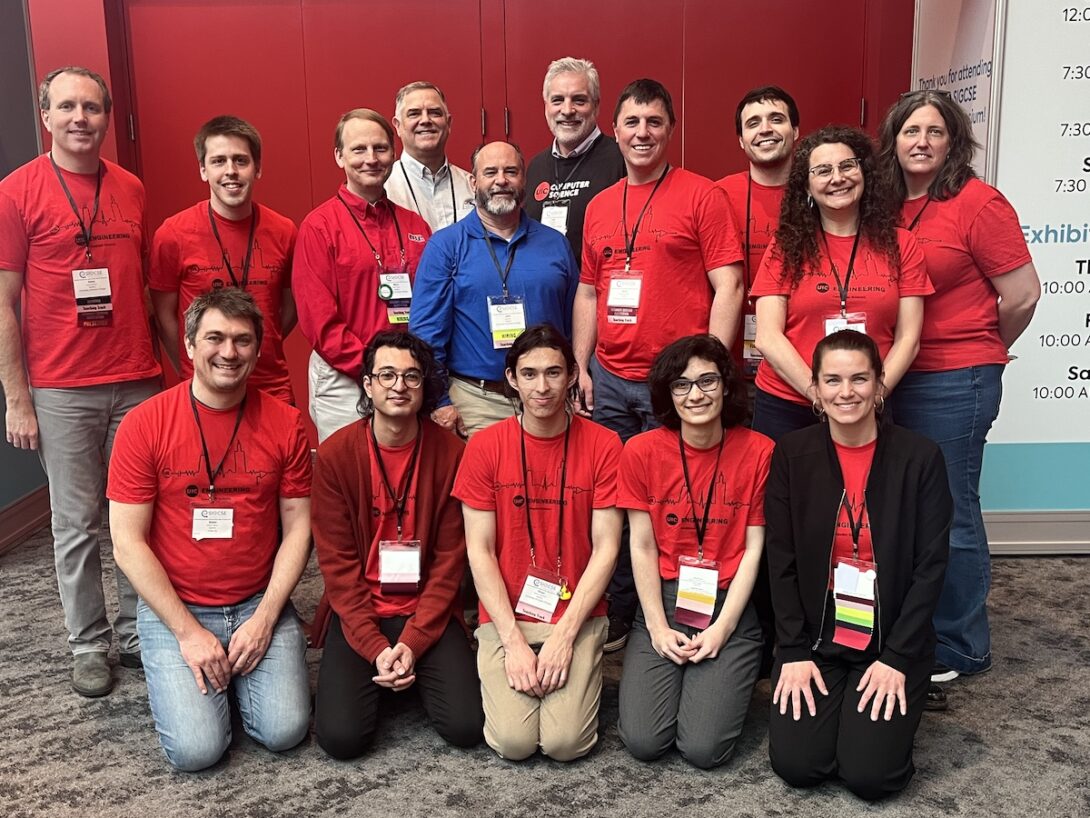Alumna, faculty present at the ACM SIGSCE conference
Alumna, faculty present at the ACM SIGSCE conference

In March, a UIC alumna and former computer science teaching assistant presented her research into ways to improve teaching assistant training at the ACM Special Interest Group on Computer Science Education (SIGCSE), the group’s flagship conference.
Julie Gawenda presented a poster, Augmenting Computer Science Undergraduate TA Training Programs to Benefit Recruitment, Refinement, and Retention, co–authored with fellow UIC biomedical engineering alumna and former CS teaching assistant (TA) Agne Nakvosaite, and Clinical Assistant Professor Adam Koehler, their instructor for CS 398, Undergraduate Design/Research.
“In my experience as a TA, I encountered TAs who could easily convey ideas and connect with students; I also met TAs who struggled to bridge the gap between student and teacher,” Gawenda said. “New TAs often fall into the second category.”
Gawenda and Nakvosaite noticed a relatively low retention rate among TAs in the computer science department, where they both assisted with multiple courses. Only one-third of Fall 2021 semester TAs continued their work into the Fall 2022 term. Through their research, they noted that often, one of the only methods explored to remedy the lack of returning TAs was to increase the overall TA pool size. Noting that most TAs lack an educational background, Gawenda and Kankvosaite proposed four teaching modules to better recruit, train, and retain the ranks of these crucial classroom supports.
Their training program incorporates simulation and role-playing and can ease the transition into the role of teacher, enforce the self-confidence that encourages teaching continuity, and build a sense of community among new TAs.
“At SIGCSE, I had the opportunity to share our open-source material for the modules and speak to their benefits,” Gawenda said. “These can be adopted by any TA training program.”
UIC well represented at the conference

Clinical Associate Professor Shanon Reckinger presented her paper, Traditional vs. Flexible Modalities in a Data Structures Class, alongside her co-authors Joe Hummel, a former UIC professor, and Sarah Heckman from North Carolina State University.
The paper examined the success rates of two groups of students taking UIC’s Data Structures course in 2021, with one section of the course following an in-person, traditional modality and the other taking the same course with an online, flexible modality. The study found that students in both groups performed similarly on projects, labs, homework, and a final examination, and had similar reported levels of enjoyment and satisfaction with the course. The work was motivated by the rapid adjustments computer science instructors made due to remote learning during the Covid-19 pandemic.
When gender was considered, the researchers found that the women’s performance in the traditional in-person course was lower than that of the men. In the hybrid classes, women performed equally.
“Our findings were very interesting, and we have been applying what we have learned in the computer science curriculum,” Reckinger said.
Lecturers Emanuelle (Mandy) Burton and Kristel Clayville served on a panel, Managing Authority When Teaching Computer Ethics, with Stacy A. Doore of Colby College, Michael S. Kirkpatrick from James Madison University, and Michael Goldweber from Denison University.
Their panel focused on navigating the challenges of teaching a set of practices based on a person’s beliefs, judgments, and values, which are aimed at building a student’s capacity for reflection, rather than transmitting knowledge, something required in design and engineering courses. The panelists presented methods to engage students and manage classroom authority while teaching computer ethics.
“Ethics is always external because it originates in our care for others. I see that as a strength of ethics, but its external-ness can lead to it being seen as an add-on or an afterthought in fields that are product oriented,” Clayville said. “That makes teaching ethics in computer science a real interdisciplinary feat.”
In total, over a dozen UIC computer science faculty attended the conference.